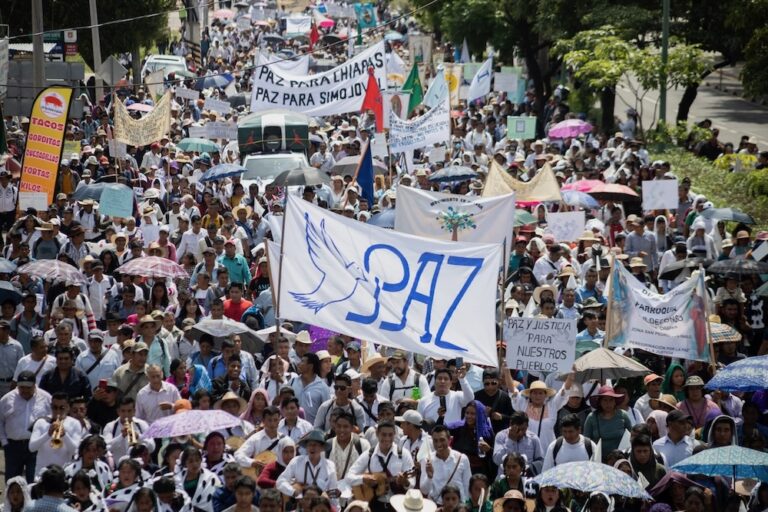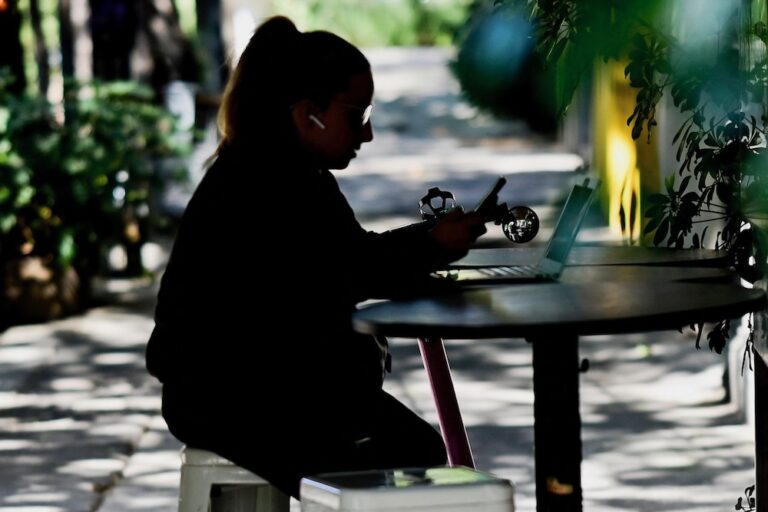(IAPA/IFEX) – The following is a 20 April 2006 IAPA press release: IAPA hails decriminalization of defamation as a major advance for press freedom National Congress upholds professional secrecy for news sources MIAMI, Florida (April 20, 2006) – The Inter American Press Association (IAPA) today hailed the amendment of the Penal and Civil Codes as […]
(IAPA/IFEX) – The following is a 20 April 2006 IAPA press release:
IAPA hails decriminalization of defamation as a major advance for press freedom
National Congress upholds professional secrecy for news sources
MIAMI, Florida (April 20, 2006) – The Inter American Press Association (IAPA) today hailed the amendment of the Penal and Civil Codes as a major advance for press freedom and the people’s right to information in Mexico. The amendments repeal existing provisions that permit prison sentences for reporters who commit libel or defamation.
The amendments, passed by Mexico’s Chamber of Deputies in a 361-0 vote with 13 abstentions, now goes to the Senate for ratification. The bill to amend the two codes was introduced by the Chamber’s Justice and Human Rights Commission and it is believed that the favorable vote was influenced by the case of journalist Lydia Cacho, jailed last December on criminal charges of defamation.
The IAPA also applauds the support given to the public’s right to know, a positive move evidenced in yesterday’s vote by Congress to uphold the concept of professional secrecy for reporters, enabling them to keep the identity of their news sources confidential and not to reveal it in court. For the measure to take effect, it must now be signed into law by the Executive Branch.
IAPA President Diana Daniels declared, “We trust that the Senate will act to decriminalize libel and defamation, as this will be a major advance for press freedom.”
Daniels, vice president of The Washington Post Company, Washington, D.C., stressed that the hemisphere free press organization she heads has been promoting such action with legislators from a number of countries in national forums through its Chapultepec Program. The aim is for national laws to be brought into line with inter-American legal parameters which determine that libel and defamation are no longer criminal offenses.
The chairman of the IAPA’s Committee on Freedom of the Press and Information, Gonzalo Marroquín, added that “these two measures are a step towards there being greater openness of information, less self-censorship and, at the end of the day, the people being able to feel they have a freer and less gagged press.”
The IAPA had been pressing for the decriminalization of libel, slander and defamation in Mexico, most recently with Marroquín, editor of the Guatemala City, Guatemala, daily newspaper Prensa Libre, having explained its stance to the National Congress there on February 8. The previous month, the issue was the focus of an IAPA delegation, headed by its regional vice-chairman for Mexico, Juan Francisco Ealy Ortiz, at a meeting with congressmen and senators from the Justice and Human Rights Commission.
Elsewhere in Latin America, libel and defamation was decriminalized in El Salvador in 2004 with amendment of the Central American country’s Penal Code.


